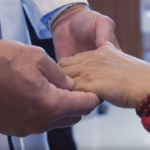Japanese pediatrician Tomisaku Kawasaki, MD, who identified an inflammatory syndrome that affects children, died on June 5 in Tokyo. He was 95. Tenacity & Attention to Detail Born Feb. 7, 1925, in Tokyo, Dr. Kawasaki graduated from medical school at what is now Chiba University in Chiba, Japan, in 1948 and worked as staff pediatrician…






